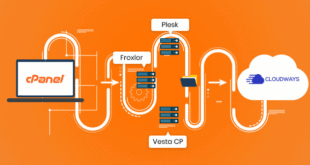Starting an online business involves a lot of research and dedication, as there are so many facets that need to be covered. Choosing a type hosting and a good provider is the first step you’ll have to take as a novice webmaster to ensure the optimal performances of your site. Most people choose to start with a shared plan because it is cheap, easy to use, and is the most popular hosting type. Others go straight to using a dedicated server because of the power and reliability it provides. However, a virtual private server (VPS) offers many of the same benefits that shared and dedicated hosting offers rolled into one. The following are three reasons why all expanding businesses should consider VPS hosting:
Reasons for VPS hosting being an ideal solution for businesses:
Extensive Options
Of all of the hosting types, VPS hosting is perhaps the most flexible because it is available on an array of sizes. In fact, many hosting companies let you use convenient sliders to adjust the attributes of your VPS plan in order to fine-tune your hosting capabilities. This is possible because a VPS is simply an allocated portion of a server, so you can essentially choose how much of the server you want to rent, proportionate to your site’s needs. As an expanding business you need to be able to upgrade quickly and conveniently, and VPS hosting allows you to do so by giving you access to extensive plan options. You can gauge how much bandwidth and disk space you use initially by opting for an entry level plan, and if you find the need to upgrade you can do so with very little effort by simply calling your hosting provider or sending them an email.
Pay-Per-Usage Billing
If you’re not sure which type of VPS plan you need you may want to opt for one that operates within the cloud hosting environment. These plans typically allow you to pay for resources on a per-usage basis depending on the amount of bandwidth and disk space you use each month. With this flexible billing structure, you’re able to ensure that you don’t pay for resources that you’ll never use. Instead, you only pay for what you use during each billing period. IN addition, you can log into the administrative control interface and see who much bandwidth and disk space you’ve used up until that point to get an idea of how much money you’re spending. The biggest advantage of these pa-per-usage VPS plans is that they offer unlimited scalability because you have access to as much bandwidth and disk space needed to keep your site performing optimally.
Starting an online business involves a lot of research and dedication, as there are so many facets that need to be covered. Choosing a type hosting and a good provider is the first step you’ll have to take as a novice webmaster to ensure the optimal performances of your site. Most people choose to start with a shared plan because it is cheap, easy to use, and is the most popular hosting type. Others go straight to using a dedicated server because of the power and reliability it provides. However, a virtual private server (VPS) offers many of the same benefits that shared and dedicated hosting offers rolled into one. The following are three reasons why all expanding businesses should consider VPS hosting:
Reliability and Performance
VPS plans offer superior performance reliability in comparison to shared hosting plans because they operate within a private partition of the server that is only dedicated to your site’s operations. Contrarily, a shared hosting plan requires you to share an entire web server with dozens or even hundreds of other webmaster, some of whom may be conducting activity that could compromise the performance of the server and ultimately cause your site to go down while administrators perform maintenance. Most VPs hosting providers utilise preventative measures to ensure that your partition cannot be hindered by the actions of other server users, as it is quarantined off from the rest of the server. In addition, the entire contents f your VPS and its operations can be instantly transferred to a designated backup partition in the event of traffic overload or a hacking attack such as a distributed denial of service (DDoS) attack.
 Cheapest Linux VPS Home for Cheap Virtual Private Server
Cheapest Linux VPS Home for Cheap Virtual Private Server 



